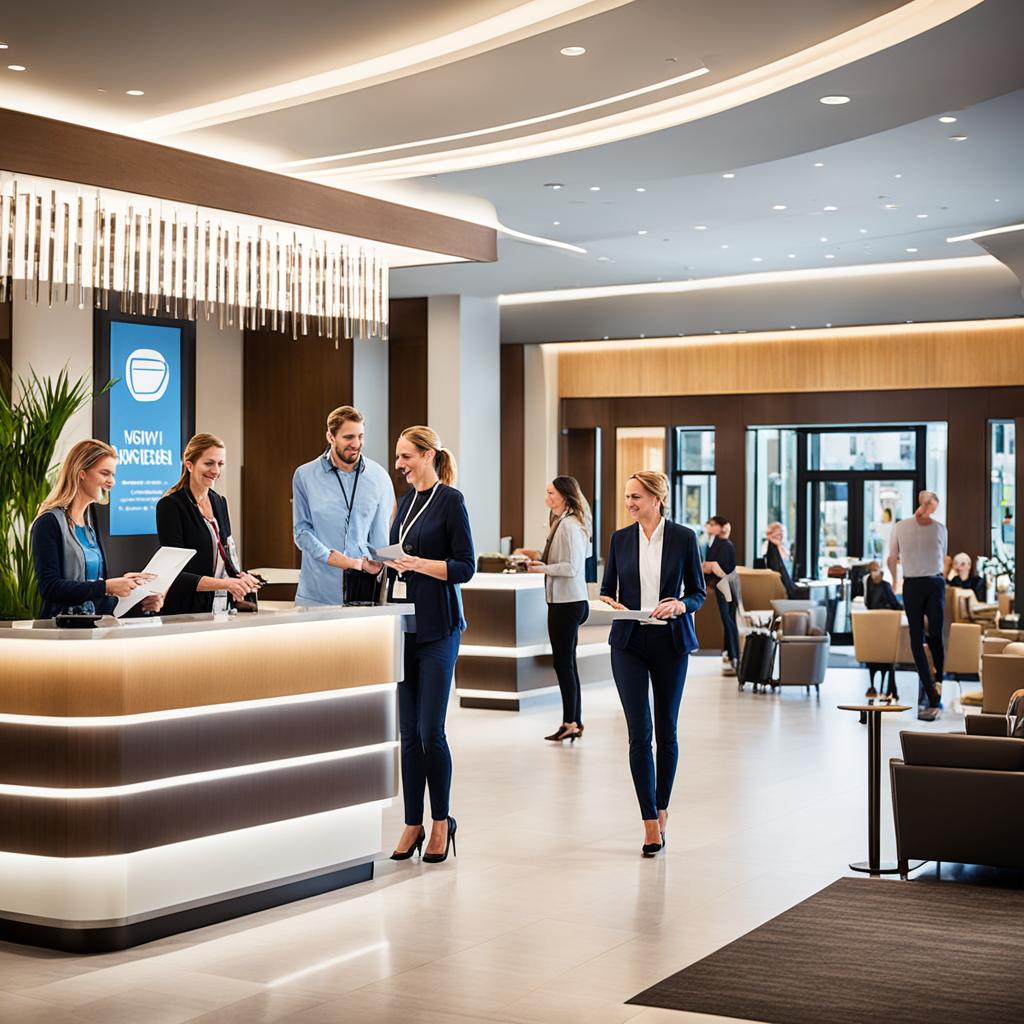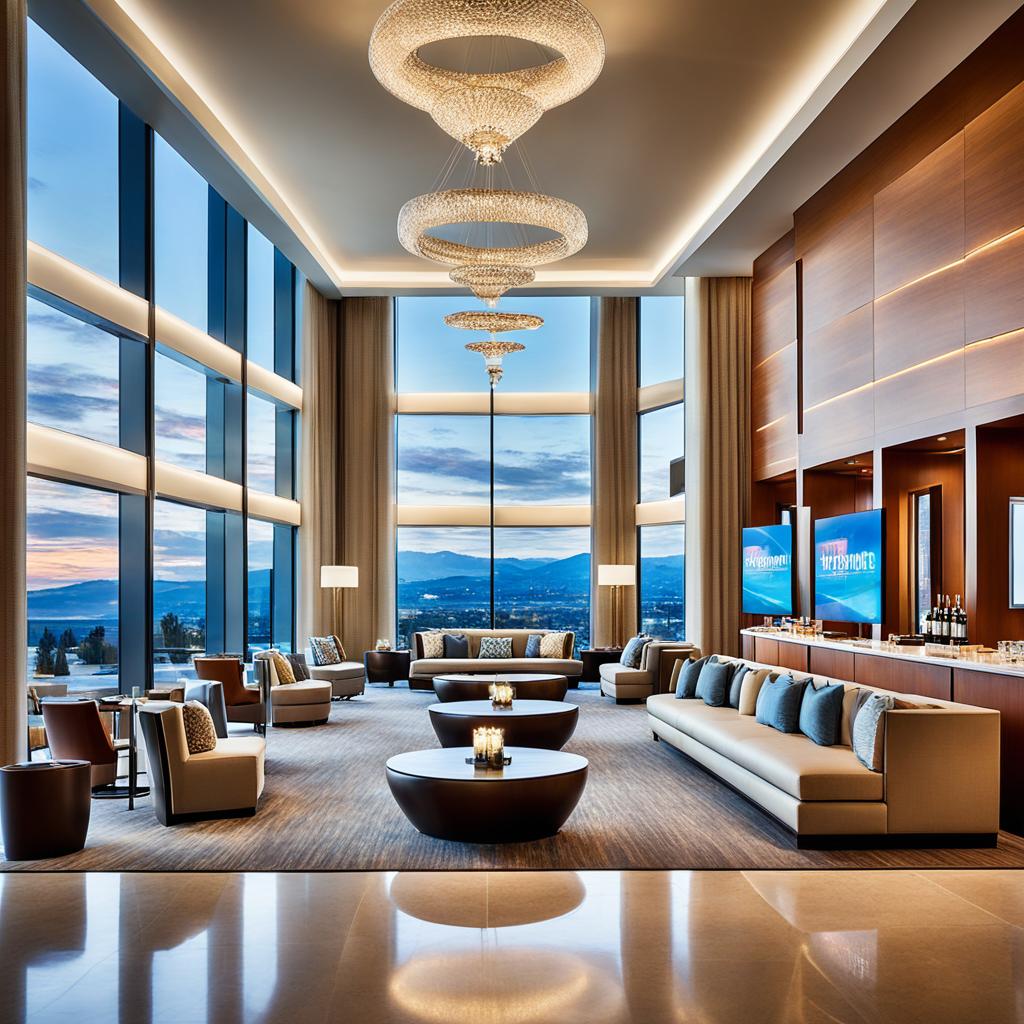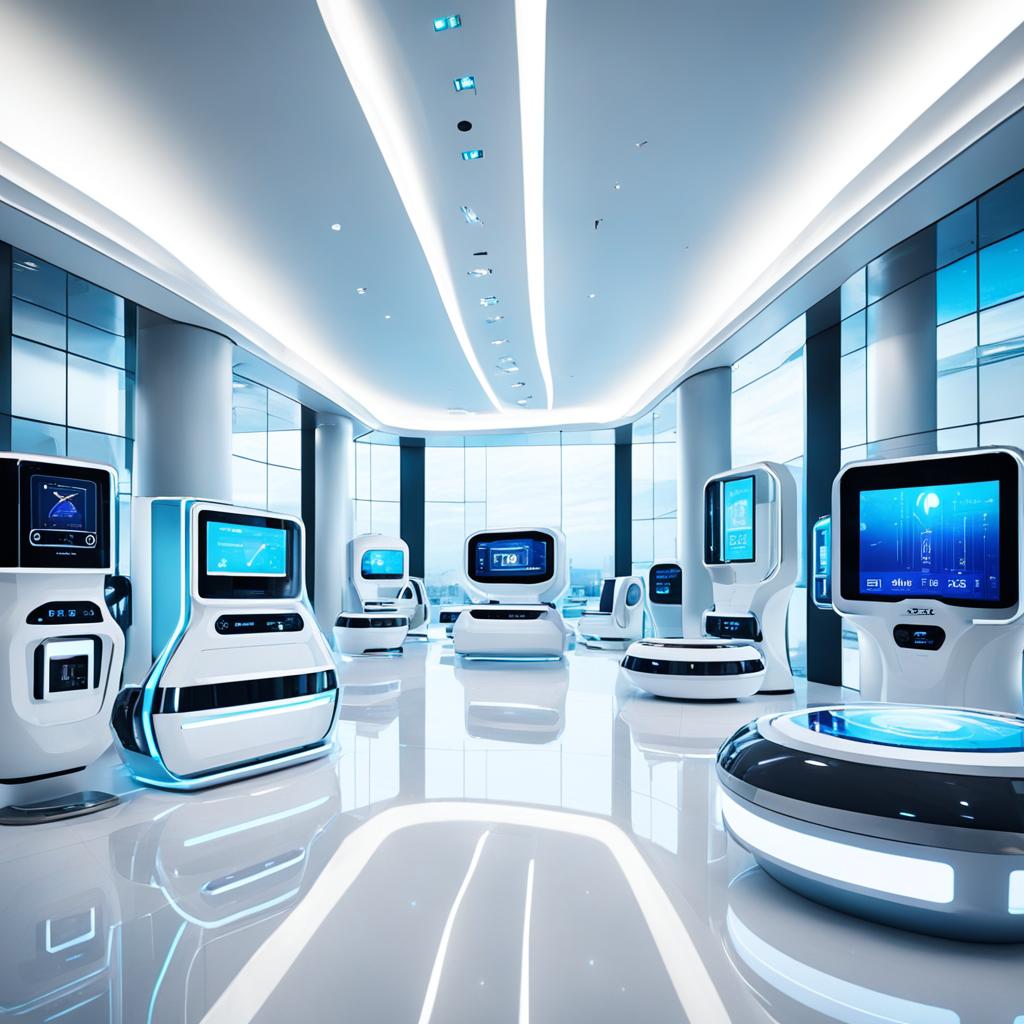When it comes to the tourism and hospitality industry, marketing isn’t just a nice-to-have. It’s an absolute necessity. But just how important is marketing in this highly competitive field? Does it truly have the power to make or break businesses? Let’s dive in and explore the impact of marketing in the tourism and hospitality industry.
Effective marketing strategies play a vital role in helping businesses thrive in the tourism and hospitality industry. But what exactly does marketing bring to the table? It’s not only about generating revenue but also about increasing visibility, creating brand awareness, staying relevant to changing trends, and ultimately, differentiating yourself from competitors.
In this article, we’ll take a closer look at the role of marketing in hospitality business management, the latest trends in luxury hospitality marketing, the impact of technology on the industry, the importance of customer experience, defining your hospitality brand, digital marketing strategies, and the power of experiential marketing.
So, before you embark on your next adventure in the tourism and hospitality industry, ask yourself: How important is marketing to your success? Are you leveraging the power of marketing to its full potential? Get ready to uncover the answers and discover how marketing can take your business to new heights.
The Role of Marketing in Hospitality Business Management

When it comes to hospitality business management, marketing plays a crucial role in driving success and growth. By implementing effective marketing strategies, businesses in the hospitality industry can raise brand visibility, engage customers, and increase revenue. Let’s explore how marketing contributes to the success of hospitality businesses.
Raising Brand Visibility
Marketing allows hospitality businesses to increase their brand visibility and stand out in a competitive market. With the right marketing tactics, such as search engine optimization (SEO) and online advertising, businesses can enhance their online presence and attract more potential customers. By reaching a wider audience, businesses can generate leads and create opportunities for growth.
Engaging Customers
Effective marketing strategies enable hospitality businesses to engage customers and build relationships. By crafting compelling content and leveraging social media platforms, businesses can connect with their target audience on a deeper level. Engaged customers are more likely to become loyal patrons and recommend the business to others, helping to strengthen its reputation and increase customer base.
Increasing Revenue
Marketing plays a pivotal role in driving revenue growth for hospitality businesses. Through strategic pricing, promotion, and distribution strategies, businesses can attract more customers and encourage them to spend more. By effectively communicating the value and unique offerings of their services, businesses can justify premium prices and maximize their revenue potential.
Achieving Competitive Advantage
The hospitality industry is highly competitive, with businesses offering a wide range of services. Marketing helps businesses differentiate themselves from competitors by showcasing their unique selling proposition. Whether it’s through highlighting exceptional customer service, exquisite amenities, or one-of-a-kind experiences, effective marketing strategies allow businesses to capture the attention of potential customers and position themselves as the top choice in the market.
Building a Loyal Customer Base
Marketing efforts are instrumental in attracting and retaining customers, leading to the creation of a loyal customer base. By consistently delivering exceptional experiences, businesses can nurture customer loyalty and encourage repeat visits. Additionally, marketing initiatives like personalized promotions, loyalty programs, and targeted email campaigns can further strengthen the bond between the business and its customers.
| Benefits of Marketing in Hospitality Business Management |
|---|
| Raise brand visibility |
| Engage customers and build relationships |
| Increase revenue through strategic pricing and promotion |
| Achieve competitive advantage by differentiating from competitors |
| Build a loyal customer base through exceptional experiences |
With the increasing competition in the hospitality industry, marketing has become more important than ever. By implementing effective marketing strategies, businesses can elevate their brand, attract and retain customers, and ultimately drive sustainable growth and success.
Latest Trends in Luxury Hospitality Marketing

In the dynamic world of luxury hospitality, staying up-to-date with the latest marketing trends is essential to stay ahead of the competition. Let’s explore some of the most influential trends shaping the industry today:
Influencer Marketing
One of the most powerful marketing strategies in luxury hospitality is influencer marketing. By partnering with influential social media personalities, brands can amplify their reach and captivate their target audience. These collaborations allow hotels and resorts to showcase their unique offerings and create a desire among travelers to experience luxury hospitality at its finest.
Sustainability
Embracing sustainability has become a significant trend in the luxury hospitality industry. Today’s conscious travelers seek eco-friendly practices when choosing their accommodations. By implementing sustainable initiatives such as energy-efficient technologies, waste reduction programs, and organic, locally sourced ingredients, luxury hospitality brands can not only attract environmentally-conscious customers but also contribute positively to the planet.
Social Media Video Content
The rise of social media video content has revolutionized luxury hospitality marketing. Captivating visuals and immersive storytelling enable hotels and resorts to showcase their facilities, amenities, and unique experiences in a compelling way. Whether it’s virtual tours, behind-the-scenes glimpses, or guest testimonials, video content on platforms like Instagram, YouTube, and TikTok engage audiences and inspire them to book their next luxurious getaway.
Chatbots
Improving accessibility and enhancing customer experience, chatbots have become an integral part of luxury hospitality marketing strategies. These AI-powered virtual assistants can provide instant responses to customer inquiries, make personalized recommendations, and facilitate seamless booking processes. By integrating chatbots into their websites and messaging platforms, luxury hotels can deliver prompt and efficient service, ensuring customer satisfaction.
| Trend | Description |
|---|---|
| Influencer Marketing | Partnering with social media influencers to promote luxury hospitality brands |
| Sustainability | Adopting eco-friendly practices to attract conscious travelers |
| Social Media Video Content | Utilizing captivating video content on social media platforms to engage and inspire audiences |
| Chatbots | Enhancing customer experience through AI-powered virtual assistants |
The implementation of these trends allows luxury hospitality brands to effectively reach their target audience, create memorable experiences, and nurture lasting relationships with their guests. By staying attuned to the ever-evolving landscape of luxury hospitality marketing, businesses can continue to thrive in this competitive industry.
The Impact of Technology on the Hospitality Industry

Technology has revolutionized the hospitality industry, bringing about significant changes and enhancing the guest experience. The integration of technology has paved the way for various advancements in the sector, such as online booking systems, mobile check-in, keyless room entry, and personalized experiences.
Online booking systems have made it convenient for travelers to find and reserve accommodations with just a few clicks. This technology allows guests to compare prices, read reviews, and choose the best option that suits their preferences. It has streamlined the booking process, eliminating the need for lengthy phone calls or in-person visits to make reservations. As a result, hotels can effectively manage their inventory and maximize occupancy rates.
Mobile check-in is another innovation that has transformed the hospitality industry. With the use of mobile check-in apps, guests can bypass the front desk and proceed directly to their rooms, saving time and avoiding long queues. This technology provides a seamless and contactless experience, which has become particularly important in the wake of the COVID-19 pandemic.
Keyless room entry is yet another technological advancement that has improved guest convenience and security. Instead of traditional key cards, guests can now use their smartphones or wearable devices to unlock their rooms. This eliminates the risk of lost or demagnetized key cards and adds an extra layer of security to ensure guest safety.
Furthermore, technology enables hotels to provide personalized experiences tailored to each guest’s preferences. By harnessing customer data, hotels can offer personalized recommendations, customized offers, and tailored services. This level of personalization enhances the overall guest experience and fosters a sense of loyalty and satisfaction.
Review platforms and social media have also played a significant role in transforming the way hospitality businesses market themselves and engage with customers. Online reviews influence the decision-making process of potential guests, and hoteliers can leverage this feedback to improve their services and reputation. Social media platforms, on the other hand, allow hotels to engage with their target audience, showcase their unique offerings, and build brand awareness.
As technology continues to evolve, the hospitality industry must adapt and embrace these advancements to stay competitive and meet the ever-changing needs of guests. Investing in technology not only improves operational efficiency but also enhances the overall guest experience, leading to increased customer satisfaction and loyalty.
The Importance of Customer Experience in Luxury Hospitality Marketing
When it comes to luxury hospitality marketing, customer experience is paramount. By delivering exceptional experiences, luxury brands can build strong relationships with customers, increase brand loyalty, and encourage positive reviews and referrals. In an industry where competition is fierce, offering personalized and memorable experiences sets luxury hospitality businesses apart.
Exceptional customer experiences justify the premium prices associated with luxury hospitality and make brands stand out in the market. By going above and beyond, luxury hotels, resorts, and other hospitality establishments create a lasting impression on their guests.
Building relationships with customers is a key aspect of luxury hospitality marketing. By providing impeccable service and anticipating guests’ needs, luxury brands form deep connections that go beyond a one-time stay. These relationships play a critical role in fostering brand loyalty and repeat business.
Luxury hospitality marketing is all about creating a sense of exclusivity and indulgence. By offering personalized services, tailored amenities, and unique experiences, luxury brands make their guests feel special and valued. These exceptional experiences become cherished memories and contribute to the overall satisfaction and loyalty of customers.
Positive customer experiences not only generate brand loyalty but also serve as powerful marketing tools. Satisfied guests are more likely to share their experiences through word-of-mouth, online reviews, and social media, influencing others’ purchasing decisions and expanding the brand’s reach.
In conclusion, customer experience plays a vital role in luxury hospitality marketing. By prioritizing exceptional experiences and building strong relationships with customers, luxury brands can foster brand loyalty, increase positive reviews and referrals, and stand out in a highly competitive market.
Defining Your Hospitality Brand
Defining your hospitality brand is crucial in order to differentiate yourself from competitors and effectively connect with your target audience. To establish a strong brand presence, it is important to identify your unique selling proposition (USP) and focus on what sets your business apart.
An effective USP highlights the key benefits and advantages that your hospitality brand offers to customers. By identifying and emphasizing your USP, you can position your business as a standout choice in the market. This could be anything from offering unparalleled customer service, providing a distinctive dining experience, or showcasing a specific area of expertise within the industry.
Building a consistent brand personality is also essential for creating a lasting impression on your audience. Your brand personality should reflect the core values and characteristics that define your business. It helps create an emotional connection with customers and reinforces their decision to choose your brand over others.
Crafting a clear and compelling brand message is another important aspect of defining your hospitality brand. This message should effectively communicate your brand’s values, mission, and unique offerings to your target audience. It should resonate with their desires and needs, creating a strong brand affinity.
Visual identity plays a critical role in brand recognition and recall. Investing in a cohesive visual identity that includes a memorable logo, consistent typography, and carefully chosen color palette can significantly enhance brand recognition. It ensures that your brand stands out in a crowded market and creates a compelling visual representation of your brand’s personality and message.
To further illustrate the importance of visual identity, take a look at the image below:
| Aspect | Description |
|---|---|
| Logo | A unique logo that represents your brand’s values and personality. |
| Typography | Consistent use of fonts and typography across all brand materials. |
| Color Palette | Thoughtfully chosen colors that evoke the desired emotions and resonate with your target audience. |
Creating a strong and well-defined hospitality brand involves a strategic combination of a unique selling proposition, brand personality, brand message, and visual identity. By carefully crafting these elements, you can differentiate your brand from competitors, effectively connect with your target audience, and build a strong brand presence in the hospitality industry.
Digital Marketing Strategies for Hospitality Brands
Digital marketing plays a crucial role in the success of hospitality brands. By implementing effective strategies, you can reach potential customers, build your online presence, and drive more bookings and revenue. Here are some key digital marketing strategies that can help your hospitality brand thrive:
1. Search Engine Optimization (SEO)
Implementing a strong SEO strategy is essential for improving your website’s visibility and ranking on search engine result pages. By optimizing your website with relevant keywords, creating high-quality content, and improving website performance, you can attract more organic traffic and increase your brand’s visibility.
2. Pay-Per-Click Advertising (PPC)
PPC advertising allows you to target potential customers actively searching for hospitality services. By bidding on relevant keywords, you can display targeted ads on search engines and pay only when someone clicks on your ad. This strategy can drive highly qualified traffic to your website and increase your chances of converting leads into bookings.
3. Social Media Marketing
Social media platforms provide a valuable opportunity to connect with potential customers, showcase your brand personality, and build engagement. By creating compelling content, running targeted ad campaigns, and engaging with your audience, you can increase brand awareness, drive website traffic, and generate bookings.
4. Email Marketing
Email marketing is a cost-effective way to reach and engage both potential and existing customers. By building a subscriber list and sending personalized, relevant content, you can nurture leads, promote special offers, and drive repeat bookings. Email marketing is also an effective channel for building brand loyalty and encouraging customer reviews and referrals.
5. Online Reputation Management
Your online reputation can significantly impact purchasing decisions. Implementing online reputation management strategies allows you to monitor and respond to customer reviews and ratings, ensuring a positive perception of your brand. By actively managing your reputation, you can build trust, enhance brand credibility, and attract more bookings.
Implementing these digital marketing strategies can help your hospitality brand stand out in a competitive market, attract more customers, and drive revenue. By leveraging the power of digital marketing, you can create a strong online presence, build meaningful brand relationships, and ultimately achieve long-term success in the industry.
Experiential Marketing in Hospitality
Experiential marketing is a powerful technique utilized in the hospitality industry to create unforgettable and immersive experiences that deeply engage customers on an emotional level. By providing unique and memorable encounters, hospitality brands can captivate their audience, generate brand awareness, and foster customer engagement.
Experiential marketing takes various forms, including hosting exclusive events, organizing exciting activities, collaborating with influencers, offering captivating demonstrations, and encouraging user-generated content. These experiences not only create lasting memories for customers but also serve as valuable social media content, helping to amplify the brand’s reach and influence.
By implementing successful experiential marketing campaigns, hospitality brands can achieve several key benefits. Firstly, they can elevate brand awareness by standing out in a competitive market. Additionally, positive word-of-mouth generated from these experiences can lead to increased customer interest and loyalty. Ultimately, experiential marketing enables hospitality brands to differentiate themselves, leaving a lasting impression on customers and staying top of mind in a highly saturated industry.


